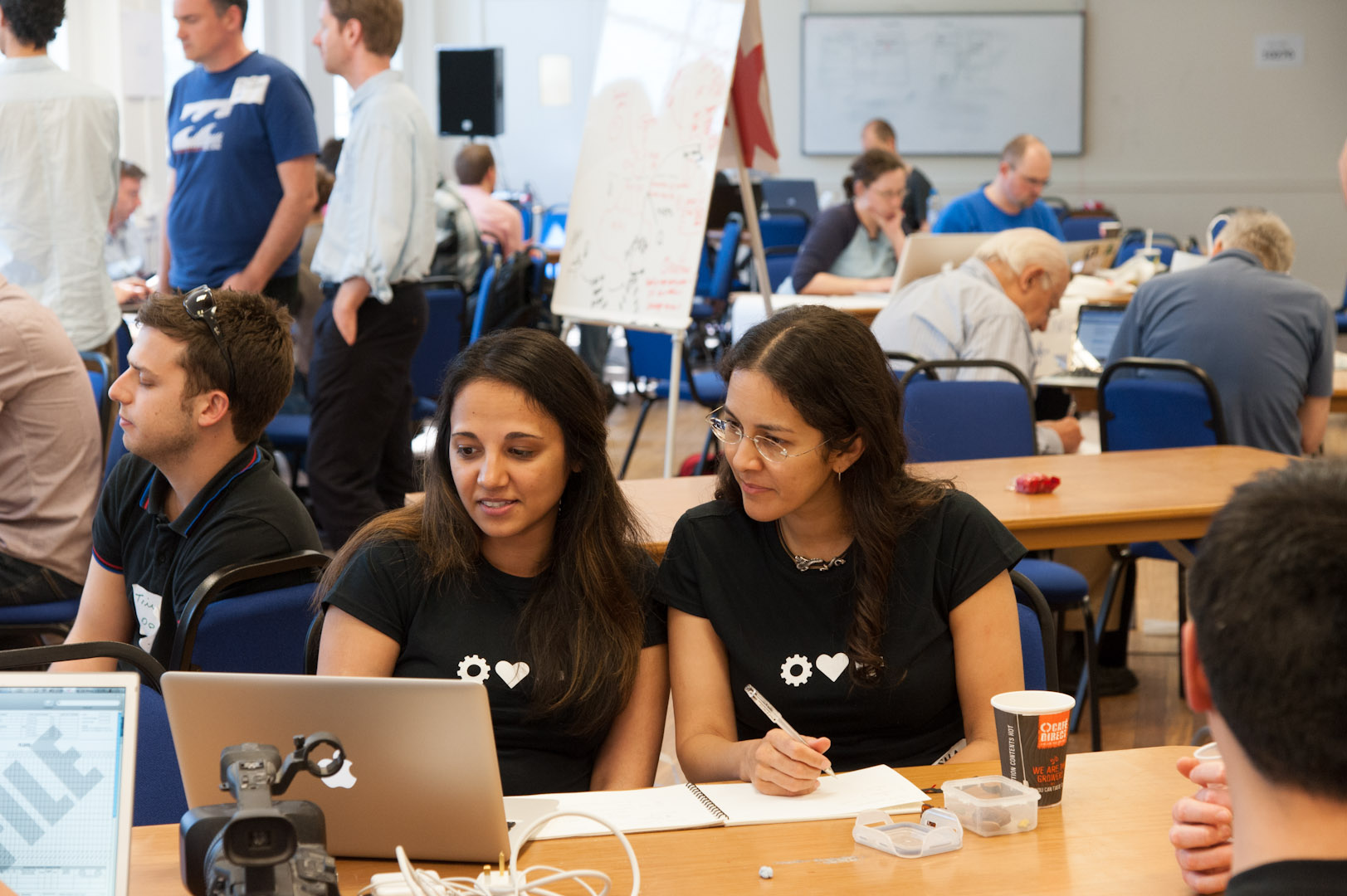How to Run a Hack Day

This post is the prose form of a workshop we recently ran at the Department for Business, Innovation and Skills about hack days.
So, you want to run a hack day?
A hack day is an event in which domain experts with user needs collaborate with people who have skills in delivering digital products and services including developers, designers, user researchers and product specialists. Hack days typically last between a day and a week. Some hack days are intended simply for educational or social purposes, although in many cases the goal is to create usable software.
Hack days are a great way to get multidisciplinary teams working together to create creative tangible solutions to real world problems.
Why are you doing this?
The first thing you’ll need to figure out is why you’re running a hack day.
There are broadly five reasons people run hack days.
- To build community
- To educate people
- To get focussed fast paced R&D
- For PR
- er hack days are cool, what do you mean why?
You should make sure you have a clear answer to why you’re doing this before you start running a hack day - because this maximises the likelihood that you and your attendees will have a great time and get lots of value from the event.
For instance, with NHS Hack Day - the events that we run around the country for “Geeks who love the NHS” - we have a few reasons. We’re aiming to:
- Build community and friendships between members of the clinical and technology sectors
- Show front line clinical staff just how good Digital Services can be, empowering them to demand better from their institutions when they go back to work
- Showcase Open Source, Open Governance, and the power of collaborating in small heterogeneous teams of domain experts.
That’s reasons 1, 2 and a little bit of 4.
You might be looking to build the cross-disciplinary skills of your teams, introducing people to Digital ways of working, thinking and approaching problems, you might be looking to provide concrete examples of products and services aligned with your policy goals - understanding that showing is more powerful than telling. Whatever your reason is, make sure you can explain it clearly so that you remain focussed on that throughout.
What do you need to do?
So, you want to run a hack day ?
Great!
There are lots of documents out there that will take you through the low level details, we’re not going to go through those again in detail, but you basically need to put five things in a room:
- User needs
- Wifi
- Power
- Coffee
- Technologists who know how to deliver Digital
Start with needs
The value that comes from the event is directly related to the quality of the ideas for projects that are in the room. The best hack day projects address specific real world user needs. It’s well worth thinking about these before the event, and seeking feedback from others - particularly from people who’ve attended hack days before.
With NHS Hack Day, we encourage people to discuss their ideas on our mailing list, on Twitter, and in person at meetups so that we can help people come with well formed ideas that inspire our attendees. For more focussed commercial hack days we work with people to frame and present their ideas in such a way that they work well within the context of a hack day.
Basic logistics
Hack days have some slightly special logistical requirements of the room that you’re going to be in. The most frequent problem is that the Wifi isn’t good enough. As the Hack Day Manifesto says:
Don’t just trust anyone who tells you that “it’ll be fine”. People from the venue or their commercial partner will tell you all sorts of things you want to hear but keep in the back of your mind that they may not have any clue what they are talking about.
In addition to this, you’ll also have lots of people wanting to plug in their laptops, so try to make sure that there is good access to power points. Providing tea, coffee and other beverages as well as lunch and breakfast is always appreciated by attendees, as are easily accessible whiteboards, flip charts, post-its & sharpies.
Making your ideas a reality
At the end of your hack day, you’ll have a wrap up session where everyone presents what they’ve been working on. There will be lots of excitement and energy in the room, you may even have judges and prizes! If all has gone well, several prototypes of new Digital products or services will exist that didn’t at the start of the day.
If your aim was to build community and educate people, then you should already have gone a long way to meeting your goals! Sometimes though, you will want to find a way to take promising projects forwards and make them genuine products or services.
If you’re looking to do this, then it’s worth thinking about that path before the event. This might involve providing investment or support for teams who want to go forward with their idea, promising people time to work on their project, or giving projects marketing and promotion. The details are often dependent on who you are, and what kinds of user needs you’re looking to meet.
Still want some more help?
If you’re still unsure about how to run your hack day, Open Health Care UK provide strategic and logistical support to organisations in healthcare and the wider public sector looking to run great events - so drop us a line at hello@openhealthcare.org.uk to see how we can help.
